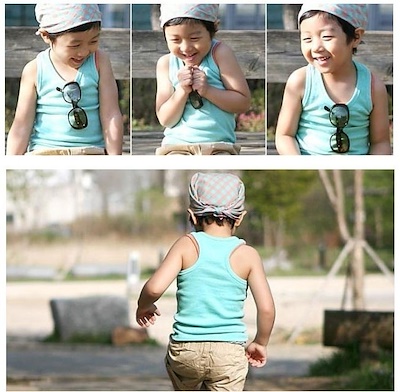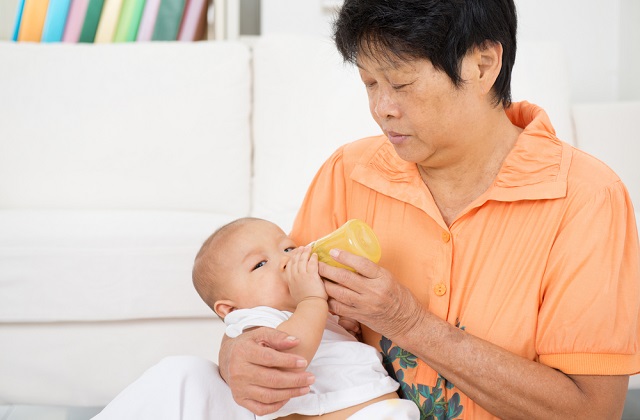How to discipline children at home?
Discipline plays a vital role in shaping a child's character, fostering self-discipline, and guiding them toward responsible adulthood. It requires a balanced approach that fosters learning, responsibility, and respect while maintaining a loving and supportive environment. This article aims to address common concerns regarding discipline and behavior management concerning children and provide guidance on nurturing a positive disciplinary approach.
1. Understanding Developmental Stages
Concern: Disciplinary approaches that do not consider a child's age and developmental stage may be ineffective or inappropriate.
Solution: Tailor discipline to match a child's age and development. Adjust expectations, consequences, and communication methods accordingly to ensure they are developmentally appropriate.
The World Health Organization(WHO) encourages parents to have developmentally appropriate expectations for their children. Understanding children's capabilities and stages of development can help parents set realistic expectations and constructively respond to behavior.2. Fear-Based Discipline
Concern: Some traditional disciplinary methods rely on fear-based approaches, which may lead to anxiety, diminished self-esteem, and fear of authority.
Solution: Shift towards positive reinforcement and communication to encourage good behavior. Focus on explaining the consequences of actions and fostering understanding rather than instilling fear.
3. Consistency and Fairness
Concern: Inconsistency in discipline and perceived favoritism can create confusion and resentment among children.
Solution: Establish clear, consistent rules and consequences for all children. Ensure fairness by treating each child equally and addressing behaviors based on the situation, not personal biases.
4. Physical Punishment
Concern: The use of physical punishment raises concerns about its negative effects on a child's mental and emotional well-being.
Solution: Avoid physical punishment altogether. Utilize positive discipline strategies such as time-outs, loss of privileges, or redirection to teach appropriate behavior and consequences.
WHO advocates for the prevention of violence against children, including physical punishment. Instead, WHO promotes non-violent forms of discipline that respect children's dignity and rights.5. Negative Labels and Shaming
Concern: Labelling a child negatively (e.g., "bad child") or shaming them may damage their self-esteem and self-image.
Solution: Use positive language and focus on addressing the behavior rather than labeling the child. Encourage self-reflection and growth by discussing actions and their impact.
6. Lack of Communication
Concern: Inadequate communication about disciplinary actions can leave children feeling confused or unfairly treated.
Solution: Maintain open communication with children about expectations, rules, and consequences. Discuss disciplinary actions calmly and provide opportunities for the child to express their feelings and thoughts.
7. Overlooking Positive Behaviour
Concern: Overemphasis on negative behaviors can lead to overlooking positive actions, which may discourage children.
Solution: Celebrate and praise positive behavior regularly. Offer positive reinforcement, rewards, and acknowledgment to motivate children to continue making good choices.
8. Isolation and Time-Outs
Concern: Isolation-based disciplinary methods like time-outs may cause feelings of rejection and distress in children.
Solution: Use time-outs sparingly and ensure they are not isolating or prolonged. Instead, redirect the child's behavior positively and use time-outs as a chance for self-reflection and calming.
Effective discipline and behavior management involve fostering understanding, maintaining consistency, promoting positive communication, and recognizing the individuality of each child. By addressing concerns and adopting a positive disciplinary approach, we can guide children toward responsible behavior and nurture a healthy sense of self-esteem and responsibility.
Below are some tips for effective discipline at home:
1. Set Clear Expectations:
Establish clear rules and expectations for behavior in your home. Make sure your children understand what is expected of them and the consequences of not following the rules.
The American Academy of Pediatrics (AAP) recommends discussing rules with children calmly and respectfully and explaining the reasons behind the rules.
2. Redirect Negative Behavior:
Instead of focusing solely on punishment, try to redirect negative behavior by offering alternative activities or solutions.
The American Academy of Pediatrics (AAP) suggests redirecting children's misbehavior by offering alternative activities or choices. This approach helps children learn appropriate behaviors while avoiding power struggles.
3. Use Consequences Appropriately:
When children break the rules, impose consequences that are appropriate to the offense. Make sure the consequences are fair and related to the behavior.
4. Model Good Behavior:
Children learn by example, so make sure you are modeling the behavior you want to see in your children. Show them how to handle conflicts calmly and respectfully.
5. Encourage Communication:
Create an open environment where your children feel comfortable talking to you about their feelings and concerns. Encourage them to express themselves and listen to their perspective.
6. Use Natural Consequences:
Sometimes, allowing children to experience the natural consequences of their actions can be a powerful learning experience. However, make sure the consequences are not too severe or dangerous.
7. Be Patient and Understanding:
Discipline takes time and patience. Understand that children will make mistakes and that learning takes time. Be patient with them and offer guidance and support along the way.
8. Seek Professional Help if Needed:
If you're struggling with disciplining your children or if their behavior is causing serious problems, don't hesitate to seek help from a pediatrician, therapist, or counselor.
Discipline should be about teaching and guiding children rather than simply punishing them. It's about helping them learn to make good choices and develop into responsible, respectful individuals.
It takes a village to raise a child !
Join our WhatsApp Groups or Facebook Group to interact with parents about infant care/child care in Singapore..











